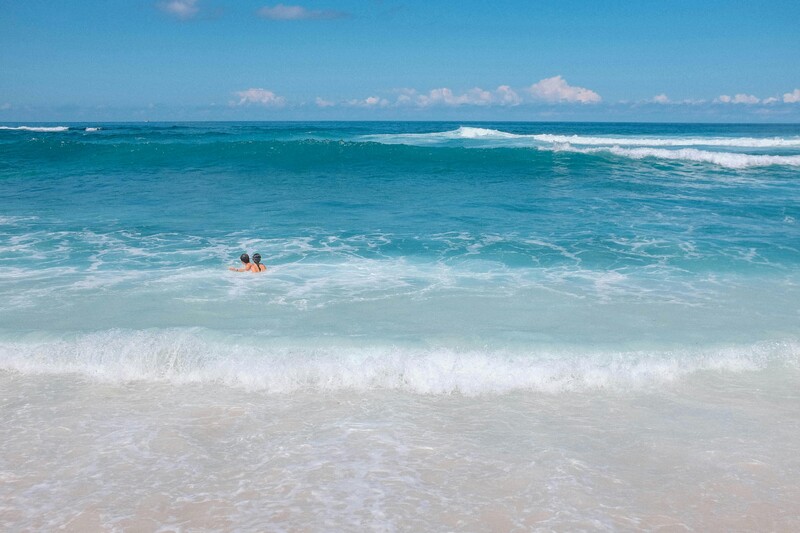Column: Dr Flaherty On Swimming Safety, More
[Column written by Dr Michael Flaherty]
The summer season in Bermuda is well and truly underway now, with the ocean temperatures warm enough for even the fairest weather of swimmers. For those looking to cool off or step up their fitness regime, swimming in the ocean is an appealing option. In addition to being a great way to burn calories and build strength, it’s a low-impact exercise, great for older people or those with injuries. However, with all of those benefits come a few drawbacks to keep an eye out for. Here is a short guide of things to watch out for and how to treat them:
Cramps
We’ve all heard that old wives’ tale about waiting 30 minutes after you eat before you go in the water. You might be glad to know that there’s no scientific basis for this. Cramps can occur for a number of different reasons and should be a sign to leave the water and take a break, especially if cramps occur in the legs or arms and may impact the ability to swim. Remember, while lounging in the sun might feel like a low impact activity, you should still keep well hydrated.
Jellyfish
While they may be beautiful, almost no one want to bump into a jellyfish when in the water. The most commonly found in Bermuda are Moon Jellyfish – which has a very mild sting, with many people not feeling anything at all – and the more formidable Portuguese Man o’ War which can have tentacles ranging from 30ft to an incredible 100ft.
If you’re unlucky enough to be stung, you should get out of the water as soon as possible, without panicking. Once on land, try to remove any visible tentacles from the impacted area with tweezers and then rinse with white vinegar. You can then soak the skin in very hot water, around 45°C, and keep immersed for 20-45 minutes. Once done, hydrocortisone cream can be applied to help with itching once or twice a day.
Sun protection
Sun protection [SPF 30 or above] on everyone during summer, in and out of the water – and remember, to protect Bermuda’s incredible marine life, you should only be using reef safe sunblock. Reapply it every two hours and whenever you get out of the water. While you might think that being submerged would help your sun protection, the water can actually act as a giant magnifying glass and increase sun exposure to certain areas from reflection.
Swim Safety
While rip currents and tides are unusual in Bermuda, it pays to be cautious when swimming. You should always swim with others and be on the alert for any changes in weather or conditions. If swimming with young family members, time your swims to coincide with lifeguard patrols and stay within an arm’s reach of small children.
If you do get caught in a rip current, try not to panic. Swim parallel to the shore instead of towards it – in Bermuda, it can even be worth aiming for the next beach, if it’s close by. Remember, most rip currents are only about 100ft wide. Once back on land, be sure to take time to recover and rehydrate.
Swimmer’s Ear
Getting water in your ears can lead to an infection in your ear by creating an environment for bacteria to grow. Over the counter ear drops and pain relievers from any pharmacy can help. If you experience pain or drainage following swimming, a trip to your doctor is advised.
Wiping out
Whether you’re swimming or surfing, there’s nothing like getting bowled over at the beach. While Bermuda’s sand might be prettier than most beaches, it can still hurt if you hit it too hard. If you do end up with abrasions, use clean water [but not sea water] to rinse away the debris and apply pressure. Apply Bacitracin or Neosporin to the area until healed.
- Dr Michael Flaherty, Pediatric Critical Care Physician at Mass General for Children



